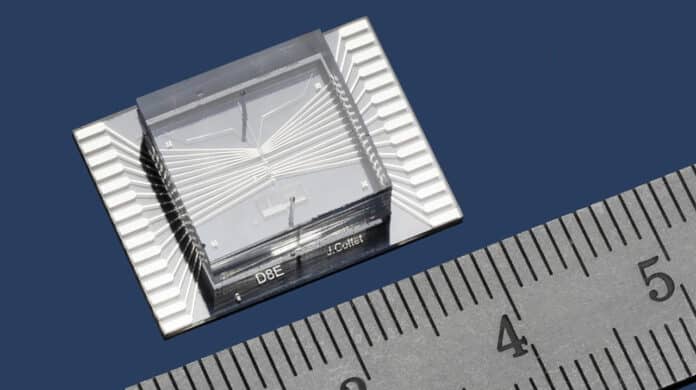Cancer is a class of diseases characterized by out-of-control cell growth and tissue invasion. Because cancer initiation seems to depend on a series of genetic mutations affecting intrinsic cellular programs, to date, the vast majority of cancer research has focused on the identification and characterization of these genetic and molecular properties of cancer cells themselves.
While developing new therapies for cancer, scientists are required to test them on models that closely resemble human tissue. Cell aggregates – groups of cells created in controlled laboratory conditions – represent a promising step in that direction.
EPFL scientists with Ampère Laboratory at the University of Lyon have recently come up with a new device to create cell aggregates. Almost the size of a microchip, this device employs electric fields to precisely control both the number and behavior of the cells used to form the aggregates.
The device consists of microchannels and electrodes positioned on a plate the size of a microchip. A liquid, which in this study contained human embryonic kidney cells, flows through the microchannels. When the electric fields are turned on, the cells are trapped in the center of the device and form an aggregate.
They then used the dielectrophoresis method to trap the cells. In this method, scientists needed to apply electric fields that attract or repel the cells depending on the properties of both the cells and the liquid.
Throughout the process, the scientists control the precise number and type of cells that circulate, selecting the ones they want to form the aggregate. Once created, the aggregate can be released without coming apart.
EPFL post-doctoral researcher Jonathan Cottet, lead author of the study said, “Cell aggregates because they are considered permanent, are an important step towards creating organoids of a desired size and composition. Organoids are comprised of several cell types and reproduce the functions of an organ.”
This study was recently published in the journal Electrophoresis.
Scientists received the “early career researcher award” at the Dielectrophoresis 2018 conference and the “Technology Award” at the Nanobiotech Montreux Conference for their work.
